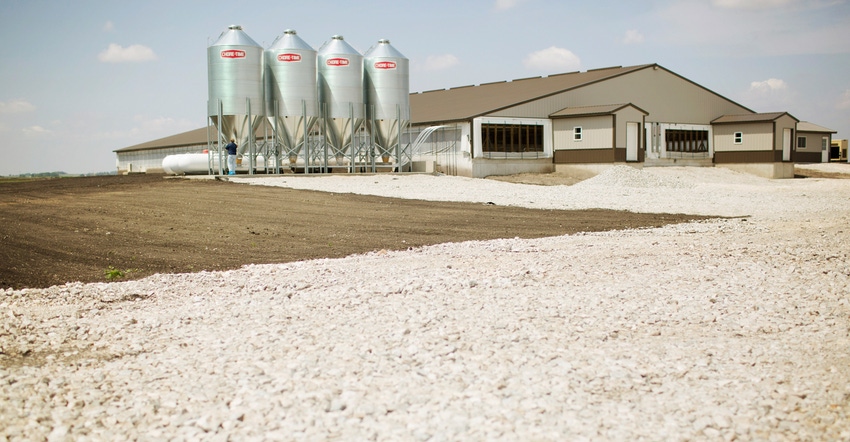
Nebraska may be known as the Beef State, but those same resources that make Nebraska appealing for beef producers also make it appealing for other livestock sectors. That includes pork production.
That's one reason Cactus Family Farms is interested in contracting with Nebraska growers to raise pigs wean-to-finish, says Rod Leman, vice president of business development at the Osceola, Iowa-based company.
"There's a large base of corn production, soybean production, ethanol production and byproducts like DDGS, and there are five pork production processing plants accessible from the eastern third of Nebraska — in Madison, Crete, Fremont, Sioux Falls and Sioux City," Leman says. "The last piece of the puzzle is there are a lot of grain farmers looking to generate additional revenue, diversify their farming operation and potentially bring the next generation back to the farm."
You may remember the Cactus name from Cactus Feeders, the company with feedlots and cow-calf operations in western Kansas and the Texas Panhandle.
Cactus Feeders, founded in the mid-1970s by Nebraska's own Paul Engler, began expanding into the pork sector in late 2014 and early 2015 with the acquisition of Orangeburg Foods of South Carolina and Swine Graphics Enterprises of Iowa. Cactus currently owns 35,000 sows in Iowa, Georgia and South Carolina.
These sows produce more than 850,000 pigs each year. After weaning, these pigs go to wean-to-finish barns, which have almost entirely been in Iowa until now.
Cactus hopes to bring that same model to Nebraska and is looking for producers to raise pigs under contract. Under these contracts, producers own the barns, provide daily care of pigs, record-keeping and load pigs on trucks for market.
Leman notes after producers make the initial investment in each 2,500-head barn site, on average, they are able to pay off the barns in 12 to 15 years, while also generating additional cash flow. However, many can build equity fast enough within five to seven years to use as collateral in their wider farming operation or to build more pig barns. There's also the added value of manure.
"We typically peg the net value of manure between $15,000 and $20,000 a year for every barn,” Leman says. “The barn has the potential to generate $15,000 to $20,000 in extra cash flow as well. That depends on many factors like financing, how big of a down payment is made, and on the manure side, things like commercial fertilizer price.
“The best thing to do is sit down with Cactus to get an understanding of the basic numbers and sit down with an agronomist to understand the nutrient value of the manure coming out of these barns."
Leman says in Iowa and Minnesota, where contracting feeding is more common, these barns typically retain their value over time.
"Historically, in the western Corn Belt, these barns are one of the few farming assets besides land that isn't a depreciating asset,” he says. “One reason is interest rates and inflation continue to press upward on new building construction costs. That has been a steady march for the last 30 years. If new construction costs rise, and demand for the barns continues to remain strong, both of which I believe will hold true, it means the barns you built yesterday are likely to continue to be worth at least what you paid to build them."
Cactus Family Farms is an employee stock ownership plan company — something established nearly 30 years ago by Engler — and has about 800 employee-owners. Leman says those employee-owners work closely with producer partners, providing training and support in getting weaned pigs off to a proper start, identifying pigs that are sick and need treatment, setting up barns and using the technology that goes with them, ensuring proper animal welfare, and sorting pigs for marketing.
"We're going to be pretty hands-on,” Leman says. “We love to work with people who have never raised pigs before — they're usually very eager to learn. If there's one thing people worry about the most, it's that they won't know how to raise pigs. I can promise that's not going to be a problem. Producers are going to have 24/7, 365 access to our people via phone, and we're going to be on-site when they need us."
Producers interested in learning more about working with Cactus Family Farms can email Leman at [email protected].
About the Author(s)
You May Also Like






